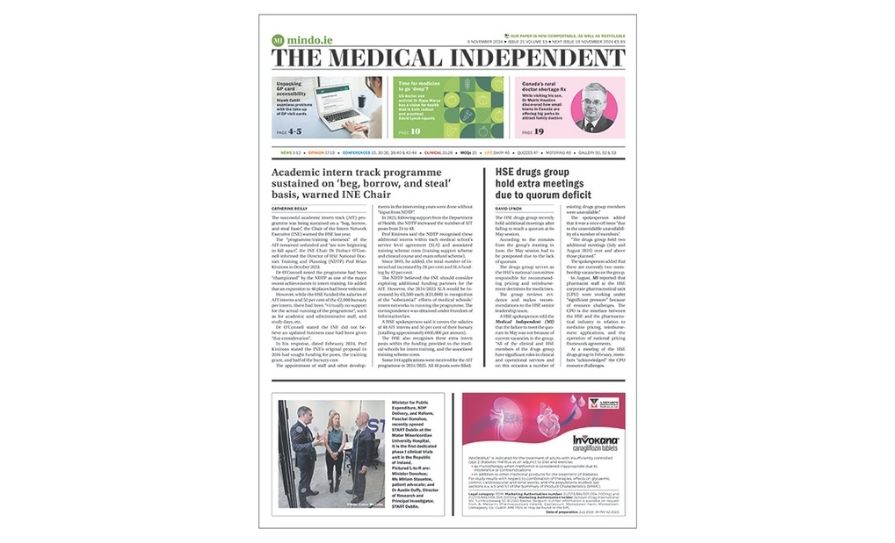The HSE intends to procure a critical care clinical information system (CIS) in four Hospitals Groups, which it says may help improve mortality rates within units.
At present, there are 26 adult critical care units in Ireland, with 10 of these operating a CIS.
In addition, there is one active critical care CIS project currently being delivered in the Saolta University Health Care Group, which is due to be completed in 2023.
The Saolta project comprises an upgrade and data migration in Sligo University Hospital (SUH) and full system implementation in Portiuncula University Hospital; Mayo University Hospital; and Letterkenny University Hospital.
Developments in SUH were completed in May 2022 and work is underway to commission the remaining three sites in preparation for system implementation.
Upon completion of these projects, the number of critical care units serviced by a CIS will be 13.
The HSE has invited expressions of interest from suitably qualified services to provide support to model 3 or 4 hospitals that do not currently have a critical care CIS.
An implementation team will be established for the RCSI Hospital Group; Dublin Midlands Hospital Group; Ireland East Hospital Group; and South/South West Hospital Group to support project delivery.
In the request for expressions of interest, the HSE stated that within the critical care environment, “a lot of manual data is generated that must be stored centrally to facilitate access by the care teams.”
“This creates bulky paper files that are difficult to share, may be mislaid, and are time-consuming to search for relevant information,” according to the Executive.
“Manual data collection and transcribing may also be prone to transcription errors. As care complexity increases and new technologies are introduced, one of our challenges is the amount of data generated, the recording of said data, and its retention in both short- and long-term.”
To overcome these difficulties, the HSE stated there is a need to introduce the latest technology available to make critical care “a paper-light environment” that can integrate all the bedside devices and hospital-wide health systems.
“The availability of good clinical information on each site and across sites helps to optimise care and the safety of the care provided,” according to the HSE.
“In the critical care environment with high density clinical data points and complex patients, a CIS has the ability to facilitate data processing and display, automate routine patient care tasks, augment clinical decision-making, and improve patient safety.
“A key benefit from installation of a CIS is a continuous and integrated electronic patient record which can be used by all members of the wider multidisciplinary team caring for the patient. Additional benefits include increased efficiency, increased quality of care, reduced mortality and improved data availability, structure and security. It will also facilitate improved communication and information exchange, ensure all relevant patient data available at bedside to assist clinical decision making, reduce transcription time and ensure the availability of data for research.”
The Executive said there is evidence that CIS use “significantly improves” documentation quality and can increase the time available for patient-orientated tasks.
“They can shorten critical care length of stay without impacting any important outcomes. Recent studies show that CIS use may improve many important clinical outcomes, in particular there may be an improvement in mortality rates.”
The scope of the contract awarded to the eventual selected service provider includes the provision of hardware, software, middleware, configuration, installation, integration, implementation, training, support, and maintenance services.
The closing date for expressions of interest is 26 September.













Leave a Reply
You must be logged in to post a comment.